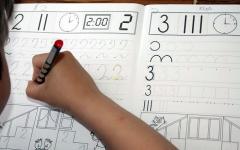To get a general understanding of the plot of this story; The story is about a nine year old boy named Schatz, his father and his doctor. Schatz thought he was going to die when the doctor told him that his temperature was 102.
The story took place before 09:00 a.m. one morning when Schatz came into his father`s room looking very sick and later on the same day being quite uncooperative. The time of the year must be either fall or early/late winter, because of the ice on the ground. The story took place at Schatz`s house and appeared to be set in a country other than France. Schatz being diagnoses with such a high fever and a belief that he was going to die, started the conflict. And when he learned that there was a difference between the thermostats he calmed down, which was the end of the conflict.
The story`s structure showed a hard process. The complications started when Schatz walked into his father`s room and moved as if he was in pain.
The big issue started when the doctor diagnosed him with a fever of 102 degrees, the doctor gave him a prescription for a medication. Schatz had the thought that he would die because the schoolboys in France said that individuals died from a fever of forty-four. The ending of this big issue was when his father told him about the different thermostats. So obviously the climax was when he realized that he was actually not going to die and that he simply, just had a seasonal fever. And the resolution was when he relaxed after realizing and when he cried of no importance.
The characterization of Schatz is that he is the main character in this short story and he shows both positive and negative sides of himself. Schatz is a very determined young boy and he is shown as with a strong willpower and does not seem easily shocked by his position. Apparently he has quite a significant memory because he remembers what the French schoolboys told him once.
Schatz could also be seen as a rival against himself by fighting not to overcome his illness. Basically he was his own enemy. He believed in everything he heard. It sounds like he is as a brat, not listening to his father nor the helpers at home under the circumstances of his father`s absence.
The main “movers” in this story are Schatzґs father who made him calm down and the doctor who gave him the diagnosis of a very high fever. The background people are the schoolboys who gave him the idea of death from high fevers in Schatzґs head. The helpers who tried to take care of Schatz when his father went out hunting are also movers, together with the unknown person in the beginning of the story (probably a parent who is not named).
So over to the theme, this short story actually has several! I think the first suitable theme is “do not believe in everything you hear” because Schatz believed in the facts the French boys gave him. He did not check facts and therefore he believed he would die. The second theme I mean is “Don’t give up so easily” because Schatz didn’t bother fighting for his flu but at the same time, he was too young to realize this. He gave up and was actually just waiting for death. The third theme is “After dark, there is always sunlight” because Schatz was relieved that he was not going to die.
The resolution (or result) was when Schatz returned to normal and accepted that he was wrong about the fever drama. He became friends with everyone and everything returned to normal.
The father misunderstands what the son is trying to say. And therefor sounds like he doesn’t care. For example, when Schatz says to his father that he can leave the room if it bothers him, he means death. When the father responds that it doesn’t bother him, it sounds like he doesn’t care if Schatz is going to die or not. The father also communicates quite cool and sounds like an ego. But this seems to even out because he calls his son Schatz which means honey in German.
Kommentarer fra brukere
En gang i blant skrives det kommentarer som mangler seriшsitet eller som ikke har noe med oppgavens tema е gjшre. Hjelp oss е rydde! Klikk "varsle" nederst til hшyre pе de meldinger du mener mе bort. Sе fjerner redaksjonen kommentarene etter hvert.A DAY’S WAIT by E. Hemingway
He came into the room to shut the windows while me were still in bed and I saw he looked ill. He was shivering, his face was white, and he walked slowly as though it ached to move.
"What"s the matter, Schatz?"
"I"ve got a headache".
"You better go back to bed".
"No, I am all right".
"You go to bed. I"ll see you when I"m dressed".
But when I came downstairs he was dressed, sitting by the fire, looking a very sick and miserable boy of nine years. When I put my hand on his forehead I knew he had a fever.
"You go up to bed," said, "you are sick".
"I am all right", he said.
When the doctor came he took the boy"s temperature.
"What is it?" I asked him.
"One hundred and two."
Downstairs, the doctor left three different medicines in different coloured capsules with instructions for giving them. He seemed to know all about influenza and said there was nothing to worry about if the fever did not go above one hundred and four degrees. This was a light epidemic of influenza and there was no danger if you avoided pneumonia.
Back in the room I wrote the boy"s temperature down and made a note of the time to give the various capsules.
"Do you want me to read to you?"
"All right. If you want to," said the boy. His face was very white and there were dark areas under his eyes. He lay still in the bed and seemed very detached from what was going on.
I read about pirates from Howard Pyle"s "Book of Pirates", but I could see he was not following what I was reading.
"How do you feel, Schatz?" I asked him.
"Just the same, so far," he said.
I sat at the foot of the bed and read to myself while I waited for it to be time to give another capsule. It would have been natural for him to go to sleep, but when I looked up he was looking at the foot of the bed.
"Why, don"t you try to go to sleep? I"ll wake you up for the medicine."
"I"d rather stay awake."
After a while he said to me. "You don"t have to stay in here with me, Papa, if it bothers you."
"It doesn"t bother me."
"No, I mean you don"t have to stay if it"s going to bother you."
I thought perhaps he was a little light-headed and af ter giving him the prescribed capsules at eleven o"clock I went out for a while…
At the house they said the boy had refused to let any one come into the room.
"You can"t come in," he said. "You mustn"t get what I have." I went up to him and found him in exactly the same position I had left him, white-faced, but with the tops of his cheeks flushed by the fever, staring still, as he had stared, at the foot of the bed.
I took his temperature.
"What is it?"
"Something like a hundred," I said. It was one hundred and two and four tenths.
"It was a hundred and two," he said.
"Who said so? Your temperature is all right," I said. "It"s nothing to worry about."
"I don"t worry," he said, "but I can"t keep from thinking."
"Don"t think," I said. "Just take it easy."
"I"m taking it easy," he said and looked straight ahead.
He was evidently holding tight onto himself about something.
"Take this with water."
"Do you think it will do any good?"
"Of course, it will."
I sat down and opened the "Pirate" book and commenced to read, but I could see he was not following, so I stopped.
"About what time do you think I"m going to die?" he asked.
"What?"
"About how long will it be before I die?"
"You aren"t going to die. What"s the matter with you?"
"Oh, yes, I am. I heard him say a hundred and two."
"People don"t die with a fever of one hundred and two. That"s a silly way to talk."
"I know they do. At school in France the boys told me you can"t live with forty-four degrees. I"ve got a hundred and two."
He had been waiting to die all day, ever since nine o"clock in the morning.
"You poor Schatz," I said. "It"s like miles and kilometres. You aren"t going to die. That"s a different thermometre. On that thermometre thirty-seven is normal. On this kind it"s ninety-eight."
"Are you sure?"
"Absolutely," I said. "It"s like miles and kilometres. You know, like how many kilometres we make when we do seventy miles in the car?"
"Oh," he said.
But his gaze at the foot of the bed relaxed slowly. The hold over himself relaxed too, finally, and the next day he was very slack and cried very easily at little things that were of no importance.
A DAY’S WAIT by E. Hemingway
He came into the room to shut the windows while me were still in bed and I saw he looked ill. He was shivering, his face was white, and he walked slowly as though it ached to move.
"What"s the matter, Schatz?"
"I"ve got a headache".
"You better go back to bed".
"No, I am all right".
"You go to bed. I"ll see you when I"m dressed".
But when I came downstairs he was dressed, sitting by the fire, looking a very sick and miserable boy of nine years. When I put my hand on his forehead I knew he had a fever.
"You go up to bed," said, "you are sick".
"I am all right", he said.
When the doctor came he took the boy"s temperature.
"What is it?" I asked him.
"One hundred and two."
Downstairs, the doctor left three different medicines in different coloured capsules with instructions for giving them. He seemed to know all about influenza and said there was nothing to worry about if the fever did not go above one hundred and four degrees. This was a light epidemic of influenza and there was no danger if you avoided pneumonia.
Back in the room I wrote the boy"s temperature down and made a note of the time to give the various capsules.
"Do you want me to read to you?"
"All right. If you want to," said the boy. His face was very white and there were dark areas under his eyes. He lay still in the bed and seemed very detached from what was going on.
I read about pirates from Howard Pyle"s "Book of Pirates", but I could see he was not following what I was reading.
"How do you feel, Schatz?" I asked him.
"Just the same, so far," he said.
I sat at the foot of the bed and read to myself while I waited for it to be time to give another capsule. It would have been natural for him to go to sleep, but when I looked up he was looking at the foot of the bed.
"Why, don"t you try to go to sleep? I"ll wake you up for the medicine."
"I"d rather stay awake."
After a while he said to me. "You don"t have to stay in here with me, Papa, if it bothers you."
"It doesn"t bother me."
"No, I mean you don"t have to stay if it"s going to bother you."
I thought perhaps he was a little light-headed and af ter giving him the prescribed capsules at eleven o"clock I went out for a while…
At the house they said the boy had refused to let any one come into the room.
"You can"t come in," he said. "You mustn"t get what I have." I went up to him and found him in exactly the same position I had left him, white-faced, but with the tops of his cheeks flushed by the fever, staring still, as he had stared, at the foot of the bed.
I took his temperature.
"What is it?"
"Something like a hundred," I said. It was one hundred and two and four tenths.
"It was a hundred and two," he said.
"Who said so? Your temperature is all right," I said. "It"s nothing to worry about."
"I don"t worry," he said, "but I can"t keep from thinking."
"Don"t think," I said. "Just take it easy."
"I"m taking it easy," he said and looked straight ahead.
He was evidently holding tight onto himself about something.
"Take this with water."
"Do you think it will do any good?"
"Of course, it will."
I sat down and opened the "Pirate" book and commenced to read, but I could see he was not following, so I stopped.
"About what time do you think I"m going to die?" he asked.
"What?"
"About how long will it be before I die?"
"You aren"t going to die. What"s the matter with you?"
"Oh, yes, I am. I heard him say a hundred and two."
"People don"t die with a fever of one hundred and two.
Hemingway, Ernest (1899-1961): a prominent American novelist and short-story writer. He began to write fiction about 1923, his first books being the reflection of his war experience. "The Sun Also Rises" (1926) belongs to this period as well as "A Farewell to Arms" (1929) in which the antiwar protest is particularly powerful.
During the Civil War Hemingway visited Spain as a war correspondent. His impressions of the period and his sympathies with the Republicans found reflection in his famous play "The Fifth Column" (1937), the novel "For Whom the Bell Tolls" (1940) and a number of short stories.
His later works are "Across the River and into the Trees" (1950) and "The Old Man and the Sea" (1952) and the very last novel "Islands in the Stream" (1970) published after the author"s death. In 1954 he was awarded a Nobel Prize for literature.
Hemingway"s manner is characterized by deep psychological insight into the human nature. He early established himself as the master of a new style: laconic and somewhat dry.
He came into the room to shut the windows while we were still in bed and I saw he looked ill. He was shivering, his face was white, and he walked slowly as though it ached to move. "What"s the matter, Schatz?"
"I"ve got a headache."
"You"d better go back to bed."
"No, I"m all right."
"You go to bed. I"ll see you when I"m dressed."
But when I came downstairs he was dressed, sitting by the fire, looking a very sick and miserable boy of nine years. When I put my hand on his forehead I knew he had a fever.
"You go up to bed," I said, "you"re sick."
"I"m all right," he said.
When the doctor came he took the boy"s temperature.
"What is it?" I asked him.
"One hundred and two."
Downstairs, the doctor left three different medicines in different colored capsules with instructions for giving them. One was to bring down the fever, another a purgative, the third to overcome an acid condition. The germs of influenza can only exist in an acid condition, he explained. He seemed to know all about influenza and said there was nothing to worry about if the fever did not go above one hundred and four degrees. This was a light epidemic of flu and there was no danger if you avoided pneumonia.
Back in the room I wrote the boy"s temperature down and made a note of the time to give the various capsules.
"Do you want me to read to you?"
"All right, if you want to," said the boy. His face was very white and there were dark areas under his eyes. He lay still in the bed and seemed very detached from what was going on.
I read aloud from Howard Pyle"s Book of Pirates, but I could see he was not following what I was reading.
"How do you feel, Schatz?" I asked him.
"Just the same, so far," he said.
I sat at the foot of the bed and read to myself while I waited for it to be time to give another capsule. It would have been natural for him to go to sleep, but when I looked up he was looking at the foot of the bed, looking very strangely.
"Why don"t you try to go to sleep? I"ll wake you up for the medicine."
"I"d rather stay awake."
After a while he said to me, "You don"t have to stay in here with me, Papa, if it bothers you."
"It doesn"t bother me."
"No, I mean you don"t have to stay if it"s going to bother you."
I thought perhaps he was a little light-headed and after giving him the prescribed capsules at eleven o"clock I went out for a while.
It was a bright, cold day, the ground covered with a sleet that had frozen so that it seemed as if all the bare trees, the bushes, the cut brush and all the grass and the bare ground had been varnished with ice. I took the young Irish setter for a little walk up the road and along a frozen creek.
At the house they said the boy had refused to let any one come into the room.
"You can"t come in," he said. "You mustn"t get what I have." I went up to him and found him in exactly the position I had left him, white-faced, but with the tops of his cheeks flushed by the fever, staring still, as he had stared, at the foot of the bed.
I took his temperature.
"Something like a hundred," I said. It was one hundred and two and four tenths.
"It was a hundred and two," he said.
"Your temperature is all right," I said. "It"s nothing to worry about."
"I don"t worry," he said, "but I can"t keep from thinking."
"Don"t think," I said. "Just take it easy."
"I"m taking it easy," he said and looked worried about something.
"Take this with water."
"Do you think it will do any good?"
"Of course, it will,"
I sat down and opened the Pirate Book and commenced to read but I could see he was not following, so I stopped.
"About what time do you think I"m going to die?" he asked.
"About how long will it be before I die?"
"You aren"t going to die. What"s the matter with you?"
"Oh, yes, I am. I heard him say a hundred and two."
"People don"t die with a fever of one hundred and two. That"s a silly way to talk!"
"I know they do. At school in France the boys told me you can"t live with forty-four degrees. I"ve got a hundred and two."
He had been waiting to die all day, ever since nine o"clock in the morning.
"You poor Schatz," I said. "Poor old Schatz, it"s like miles and kilometers. You aren"t going to die. That"s a diflerent thermometer. On that thermometer thirty-seven is normal. On this kind it"s ninety-eight."
"Absolutely," I said. "It"s like miles and kilometers. You know, like how many kilometers we make when we do seventy miles in the car?"
But his gaze at the foot of the bed relaxed slowly. The hold over himself relaxed too, finally, and the next day it was very slack and he cried very easily at little things that were of no importance.
a) Pattern 2: to be busy, to know a lot, to understand each other, to hate (smb. or smth.), to love music, е .g. Ann seems to love children, I often see her playing with little boys and girls in our yard.
b) Pattern 3: to scold each other, to argue (about smth.), to meet (with), to write a letter, to dream (of smth), е .g. She can"t keep from crying when she reads sentimental poetry.
IV. Translate these sentences into English, using the patterns from Units One and Two:
1. He беспокойся, ребенок не был бы таким веселым, если бы он был серьезно болен, 2. Тебе не пошло бы, если бы ты носил бороду я усы, ты бы выглядел гораздо старше своих лет. 3. Было бы лучше, если бы они не позволяли детям смотреть телевизор так поздно. 4. Было бы естественно, если бы дети спросили меня об их новой учительнице, но никто не задал этого вопроса. 5. На твоем месте я ела бы поменьше сладкого, ты располнеешь. 6. Было бы естественно, если бы он стал ученым, ему хорошо давались точные науки в школе, но он стал актером. 7. Ты бы давно закончила этот перевод если бы не болтала по телефону. 8. Ты бы не забыла мне позвонить, если бы не была такой рассеянной.
V. Make up a dialogue, using the patterns from Units One and Two.
Example: A.: If my mother hadn"t been ill 1 should have gone to the South last summer.
В.: You had bad luck. And what are your plans for the coming winter holidays?
A.: I haven"t made any plans so far.
В.: Wouldn"t you like to stay with me at my aunt"s in the country?
A,: But would it be convenient to her?
A.: Well, that"s very nice of you to invite me.
Text. A day"s wait by Ernest Hemingway
Hemingway, Ernest (1899-1961): a prominent American novelist and short-story writer. He began to write fiction about 1923, his first books being the reflection of his war experience. "The Sun Also Rises" (1926) belongs to this period as well as "A Farewell to Arms" (1929) in which the antiwar protest is particularly powerful.
During the Civil War Hemingway visited Spain as a war correspondent. His impressions of the period and his sympathies with the Republicans found reflection in his famous play "The Fifth Column" (1937), the novel "For Whom the Bell Tolls" (1940) and a number of short stories.
His later works are "Across the River and into the Trees" (1950) and "The Old Man and the Sea" (1952) and the very last novel "Islands in the Stream" (1970) published after the author"s death. In 1954 he was awarded a Nobel Prize for literature.
Hemingway"s manner is characterized by deep psychological insight into the human nature. He early established himself as the master of a new style: laconic and somewhat dry.
He came into the room to shut the windows while we were still in bed and I saw he looked ill. He was shivering, his face was white, and he walked slowly as though it ached to move. "What"s the matter, Schatz?" 1
"I"ve got a headache."
"You"d better go back to bed."
"No, I"m all right."
"You go to bed. I"ll see you when I"m dressed."
But when I came downstairs he was dressed, sitting by the fire, looking a very sick and miserable boy of nine years. When I put my hand on his forehead I knew he had a fever.
"You go up to bed," I said, "you"re sick."
"I"m all right," he said.
When the doctor came he took the boy"s temperature.
"What is it?" I asked him.
"One hundred and two." 2
Downstairs, the doctor left three different medicines in different colored capsules with instructions for giving them. One was to bring down the fever, another a purgative, the third to overcome an acid condition. The germs of influenza can only exist in an acid condition, he explained. He seemed to know all about influenza and said there was nothing to worry about if the fever did not go above one hundred and four degrees. This was a light epidemic of flu and there was no danger if you avoided pneumonia.
Back in the room I wrote the boy"s temperature down and made a note of the time to give the various capsules.
"Do you want me to read to you?"
"All right, if you want to," said the boy. His face was very white and there were dark areas under his eyes. He lay still in the bed and seemed very detached from what was going on.
I read aloud from Howard Pyle"s 3 Book of Pirates, but I could see he was not following what I was reading.
"How do you feel, Schatz?" I asked him.
"Just the same, so far," he said.
I sat at the foot of the bed and read to myself while I waited for it to be time to give another capsule. It would have been natural for him to go to sleep, but when I looked up he was looking at the foot of the bed, looking very strangely.
"Why don"t you try to go to sleep? I"ll wake you up for the medicine."
"I"d rather stay awake."
After a while he said to me, "You don"t have to stay in here with me, Papa, if it bothers you."
"It doesn"t bother me."
"No, I mean you don"t have to stay if it"s going to bother you."
I thought perhaps he was a little light-headed and after giving him the prescribed capsules at eleven o"clock I went out for a while.
It was a bright, cold day, the ground covered with a sleet that had frozen so that it seemed as if all the bare trees, the bushes, the cut brush and all the grass and the bare ground had been varnished with ice. I took the young Irish setter for a little walk up the road and along a frozen creek.
At the house they said the boy had refused to let any one come into the room.
"You can"t come in," he said. "You mustn"t get what I have." I went up to him and found him in exactly the position I had left him, white-faced, but with the tops of his cheeks flushed by the fever, staring still, as he had stared, at the foot of the bed.
I took his temperature.
"Something like a hundred," I said. It was one hundred and two and four tenths.
"It was a hundred and two," he said.
"Your temperature is all right," I said. "It"s nothing to worry about."
"I don"t worry," he said, "but I can"t keep from thinking."
"Don"t think," I said. "Just take it easy."
"I"m taking it easy," he said and looked worried about something.
"Take this with water."
"Do you think it will do any good?"
"Of course, it will,"
I sat down and opened the Pirate Book and commenced to read but I could see he was not following, so I stopped.
"About what time do you think I"m going to die?" he asked.
"About how long will it be before I die?"
"You aren"t going to die. What"s the matter with you?"
"Oh, yes, I am. I heard him say a hundred and two."
"People don"t die with a fever of one hundred and two. That"s a silly way to talk!"
"I know they do. At school in France the boys told me you can"t live with forty-four degrees. I"ve got a hundred and two."
He had been waiting to die all day, ever since nine o"clock in the morning.
"You poor Schatz," I said. "Poor old Schatz, it"s like miles and kilometers. You aren"t going to die. That"s a diflerent thermometer. On that thermometer thirty-seven is normal. On this kind it"s ninety-eight."
"Absolutely," I said. "It"s like miles and kilometers. You know, like how many kilometers we make when we do seventy miles in the car?"
But his gaze at the foot of the bed relaxed slowly. The hold over himself relaxed too, finally, and the next day it was very slack and he cried very easily at little things that were of no importance.








